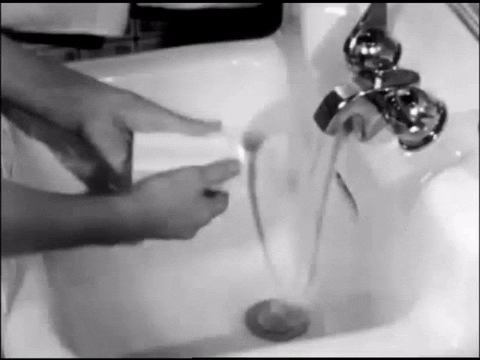There aren’t many upsides to the Covid-19 pandemic. But here’s a very small one: I haven’t had a cold or flu this winter. Usually, by mid-July, I’d have gone through boxes of tissues, my nose would be the shade of the flashing lights on an ambulance and I’d have made a trip to the GP to get checked out for a secondary respiratory infection. That’s the pain of being asthmatic: every time you get sick, you get really sick.
But this winter, nothing so far. I’ve had persistent battles with hay fever and wheezing, but that’s just my histrionic immune system overreacting to absolutely everything, especially Joburg’s winter pollution.
My relatively clean bill of health over the past few months can probably be attributed to sanitising, wearing a mask and a visor, avoiding other people and huddling in the far corner of a boardroom when I can’t. Even though I was always one of those slightly paranoid people who would wait at public toilet doors for someone else to come in so I wouldn’t have to touch the handle, these past few months have demonstrated, quite dramatically, how much snottiness and misery can be avoided with better hygiene habits.
If there’s anything that Covid-19 has made clear, it’s that health is not just an individual issue, it’s a collective one. The more people who need hospital treatment for something that was avoidable (injuries in car accidents caused by their own drunk driving, wounds because of fights, lifestyle diseases and illness from other risky behaviours), the fewer people will receive treatment for health problems they could not avoid. In the United Kingdom alone, it is estimated that Covid-19 could cause 35 000 extra cancer deaths through lack of screening in time to prevent the onset of the disease.
Every bed occupied by a patient needing treatment for something that could have been prevented is a bed that isn’t occupied by a patient who was never able to make that choice. Every private hospital bed occupied by that patient is also a burden on the medical aid — and, by extension, other members — who are footing the bill for it.
It doesn’t even need to be that dramatic. Every time you give your disgusting cold to someone else, you’re reducing someone else’s productivity or increasing the chance that someone who is immunocompromised will get really sick.
When I visited Japan a few years ago, I thought the wearing of masks on public transport was weird. Now, I completely understand it.
Here’s my wish list of Covid-19 health habits that need to stay:
1. Not going out when you’re sick;
2. Normalising sick leave or working from home so that you don’t make your colleagues sick. We’ve discovered that it is possible to be productive working from your bed while wearing pyjamas in the middle of the day. Going to the office when you’re sick does not make you a hero. and it should be unacceptable to force someone to come to work when they’re contagious. (And yes, this is probably the trickiest point of all. But it’s important.);
3. If you have even the merest sniffle, wearing a mask;
4. If you’re in public and not masked, using your elbow to sneeze or cough;
5. Sanitising your hands regularly;
6. Avoiding touching anything, especially door handles, taps or keypads; and
7. Putting an end to shaking hands or hugging out of politeness. Politeness can kill.
The more we realise that health is a not just an individual state of being, but an ongoing action that recognises your effect on those around you, the better it will be for everyone.
Next time somebody sneezes near you, don’t say “bless you”. Tell them to take the day and go home.



